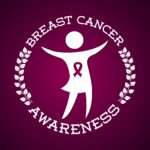What image comes to mind when the words “Breast Cancer” are spoken? The pink Breast Cancer ribbon or the breast exam? Why is this important at all? Breast Cancer is an extremely deadly form of Cancer. Here’s some facts from a report by the Centers for Disease Control and Prevention1 (CDC), and National Cancer Institute (NCI):
Not counting some kinds of skin cancer, Breast Cancer in the United States is—
- The most common cancer in women, no matter your race or ethnicity.
- The most common cause of death from cancer among Hispanic women.
- The second most common cause of death from cancer among white, black, Asian/Pacific Islander, and American Indian/Alaska Native women.
More bad news about Breast Cancer from the CDC in another2012 report2:
- 224,147 women and 2,125 men in the United States were diagnosed with breast cancer.
- 41,555 women and 405 men in the United States died from breast cancer.
- African-Americans accounted for 6,246 of the 41,555 deaths from breast cancer in 2012.
The facts should force you to pay close attention to Breast Cancer. Let us get more information about this disease.
What is Breast Cancer?
MedlinePlus3 states that Breast Cancer affects one in eight women during their lives. Breast cancer kills more women in the United States than any cancer except lung cancer. No one knows why some women get breast cancer, but there are a number of risk factors. Risks that you cannot change include
- Age – the chance of getting breast cancer rises as a woman gets older.
- Genes – there are two genes, BRCA1 and BRCA2, that greatly increase the risk. Women who have family members with breast or ovarian cancer may wish to be tested.
- Personal factors – beginning periods before age 12 or going through menopause after age 55.
Other risks include being overweight, using hormone replacement therapy (also called menopausal hormone therapy), taking birth control pills, drinking alcohol, not having children or having your first child after age 35 or having dense breasts.
Symptoms of breast cancer may include a lump in the breast, a change in size or shape of the breast or discharge from a nipple. Breast self-exam and mammography4 can help find breast cancer early when it is most treatable. Treatment may consist of radiation, lumpectomy, mastectomy5, chemotherapy and hormone therapy.
Treating and Surviving Breast Cancer
Today, more women are surviving breast cancer than ever before. Nearly three million women are breast cancer survivors according to the National Institutes of Health6.
There are several ways to treat breast cancer, but all treatments work best when the disease is found early. As a matter of fact, when it is caught in its earliest stage, 98.5 percent of women with the disease are alive five years later.
Every day researchers are working to find new and better ways to detect and treat cancer. Many studies of new approaches for women with breast cancer are under way. With early detection, and prompt and appropriate treatment, the outlook for women with breast cancer can be positive.
The CDC has developed an excellent handout on Breast Cancer. The handout even provides information for people who can’t afford a mammogram7. The CDC has developed a tool to determine if you have the genes ( BRCA1 and BRCA2) that increases the risk of Breast Cancer8.
Breast Cancer is a treatable disease! The sooner the initial treatment begins, the more benefits the patient receives. Jay Harold has a link to get free Health and Wealth information to improve your life. Cancer resources are included in this information.
A quote from Buddha summarizes Jay Harold’s thoughts. “Do not dwell in the past, do not dream of the future, concentrate the mind on the present moment.”
Take a car ride through recent Civil Rights History with the “Slow Roll Through Civil Rights” on the Jay Harold website. Enjoyed this post? Share it and read more here.
Bibliogaphy
- http://www.cdc.gov/cancer/breast/statistics/index.htm
- https://nccd.cdc.gov/uscs/cancersbyraceandethnicity.aspx
- https://vsearch.nlm.nih.gov/vivisimo/cgi-bin/query-meta?v%3Aproject=medlineplus&v%3Asources=medlineplus-bundle&query=breast+cancer
- https://vsearch.nlm.nih.gov/vivisimo/cgi-bin/query-meta?v%3Aproject=medlineplus&v%3Asources=medlineplus-bundle&query=mammography
- https://vsearch.nlm.nih.gov/vivisimo/cgi-bin/query-meta?v%3Aproject=medlineplus&v%3Asources=medlineplus-bundle&query=mastectomy
- http://nihseniorhealth.gov/breastcancer/breastcancerdefined/01.html
- http://www.cdc.gov/cancer/breast/pdf/breastcancerfactsheet.pdf
- http://www.cdc.gov/cancer/breast/young_women/knowbrca.htm







